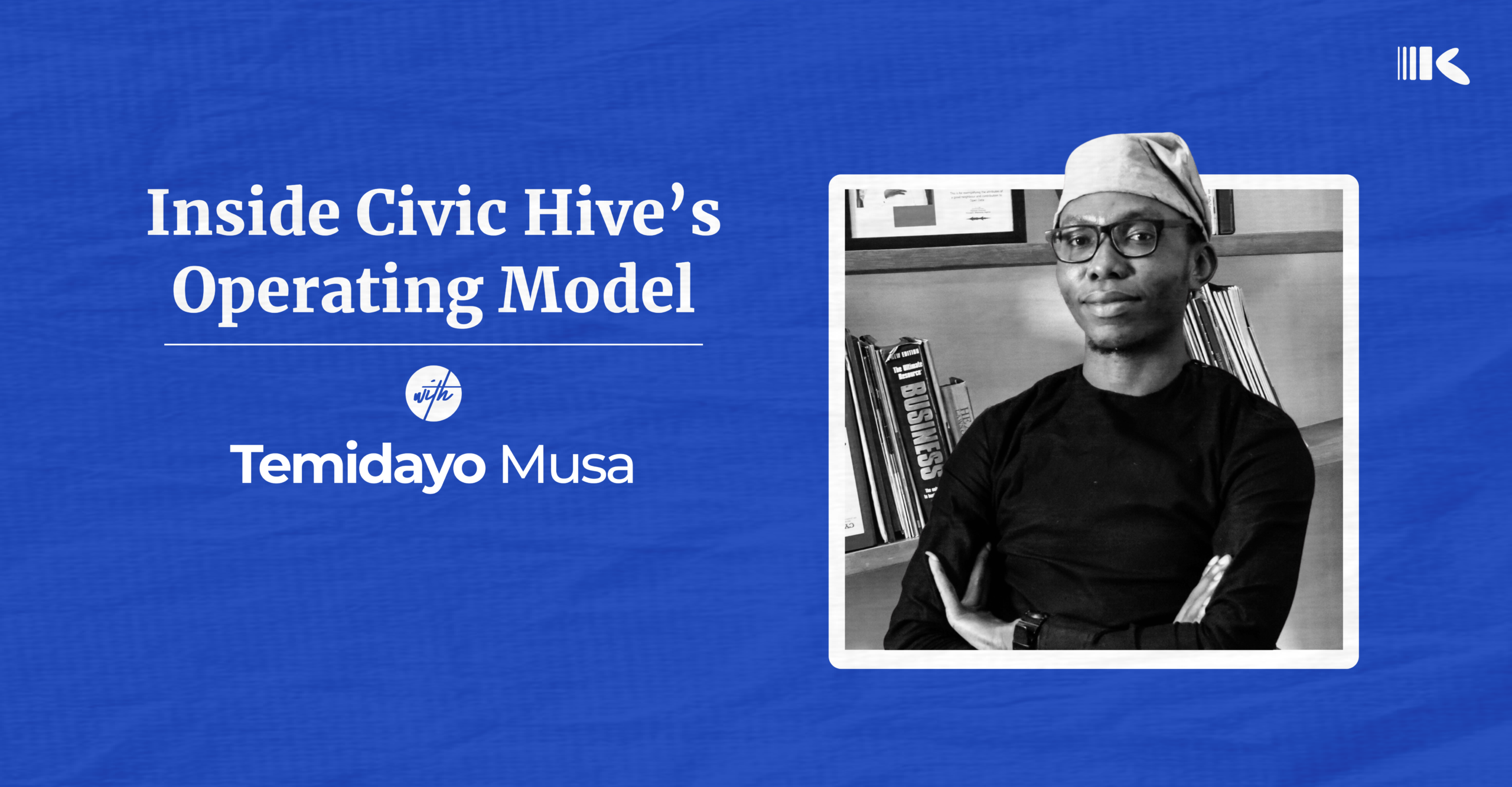Everyone tells you to volunteer. It builds your CV, expands your network, and shapes your future.
But behind the growth stories lies another reality – one that rarely gets airtime. The silent costs. The tradeoffs. The choices no one prepares you for when you sign up to “give back.”
In this Kryvent interview, we hear from Susanna Oladejo, a law student and seasoned volunteer, as she opens up about what it truly takes to keep giving your time for free while trying to keep your life afloat.
Meet Susanna Oladejo.
Susanna is an undergraduate law student with a flair for administrative support. From managing correspondence, delegating and being a staff member as Assistant Secretary General II of LMUN (Lagos Model United Nations), to conducting research at The Lex Lata Centre, her experiences span through coordination, communication, and team organisation. She thrives on creating structure that allows projects and executives to flourish.
But what does volunteering really look like for someone like her?
What first inspired you to start volunteering, and what keeps you going despite the challenges?
I actually started volunteering because a friend encouraged me. He was an Executive of an organization and needed committee members, so he pushed me to apply. At the time, I was in the first semester of my second year. My first year had been quite boring due to the COVID-19 pandemic and school strikes, so I saw volunteering as a way to get involved socially and get out of my shell.
What keeps me going is knowing that volunteering gives me access to opportunities. I meet people I could potentially work with beyond that particular task or role.
Can you share a moment when you felt fulfilled as a volunteer?
Yes. That would be last year when I got appointed to be part of the 13th Executives at the Upper secretariat(X13) for LMUN 2025. Before that, I had only served as a staff member once, so I didn’t know if I was experienced enough to apply. When I got appointed, it felt like my talent and skills had been recognised so quickly.
What made it even more fulfilling was when former members of X13 called to congratulate me and told me how proud they were of my growth. These were people who knew how introverted and withdrawn I used to be, especially during the two years I spent in the second year alone due to school strikes. Their compliments made me feel like my work truly mattered.
Volunteering is rewarding, but what are the hidden costs people often overlook?
Beyond finances, which is obvious, the hidden costs are the sacrifices you make along the way. Mentally, juggling so many volunteer roles takes a toll on you. You’re not getting paid, yet you’re trying to balance social life, family, and academics.
People often overlook the fact that you have commitments beyond the volunteer role.
Have you ever had to choose between volunteering and meeting your personal financial needs?
Yes, I have. Last December, I got a job and planned to save whatever I earned to complement my allowance when school resumed. But then NC (National Conference)Lagos came up. I really wanted the full AIESEC experience. I had spent a year in AIESEC without attending any conference, and NC Lagos was important to me.
So I used the money I had saved for school to pay for NC Lagos instead. I’m still paying for that choice now, but it was worth it anyway.
Do you think organisations value volunteers enough?
Uhm…Yes. They do, but not always. People think you have so much time on your hands. For example, in May, I was holding about 5-6 leadership roles, and some of my team leads were constantly on my neck. I had to remind them that volunteering wasn’t my only engagement, I had school and other responsibilities, and I wasn’t getting paid for these roles. Eventually, I had to drop a number of them because the mental stress became overwhelming.
In your view, what does fair compensation for volunteers look like? Is it always about money?
It’s not always about money. Sometimes it’s as simple as respecting volunteers’ contributions. For example, recognising intellectual property rights, allowing volunteers to own their ideas and contributions.
Data stipends might not always work with NGOs, so if you’re looking for financial compensation, it’s better to volunteer with a business rather than a nonprofit.
Has volunteering helped your career or personal growth in unexpected ways?
It definitely has. I’ve gained access to events and opportunities I wouldn’t have otherwise. For example, I attended a conference recently where other attendees paid ₦160,000 per person, but I went for free because a sponsor gave slots to our executives.
Being in that space allowed me to converse one-on-one with people who have 20-30 years of career experience. Volunteering has also built my social skills. I used to be very introverted, but now I interact easily.
I’ve volunteered in marketing, sales, operations, and project management. It helped me discover my strengths and weaknesses and clarified what sectors I want to work in.
Do you think volunteering is sustainable long term without pay?
Long term? Not particularly. The best thing is to volunteer and have a paying job on the other end. You can’t make volunteering your whole life or the only thing you’re doing. ‘Know when to stop and when to seek a paid role.’
People volunteer for different reasons. I started because I wanted to build my social network; others want to build their portfolio. So have a reason for volunteering, get what you need, and then start branching out to paid roles because you definitely need money to foot your bills. Long-term, no. In the short term, you need a source of income, whether from family funds or an actual job on the side.
Have you ever felt your work was taken for granted because it was unpaid?
This is very tricky. I feel like there’s a duality to this; mine and the organisations I’ve volunteered with. Personally, sometimes it’s easy for a volunteer to think, ‘They’re not paying me, why do I need to put my all into this?’ Then the volunteer takes the work for granted.
But then, the topic of organisations taking you for granted doesn’t come up often because some of them do recognise that you’re doing them a favour by giving your all. But then some might take it for granted and be disrespectful, but I can’t explicitly say, from that point of view.
What would make you choose a volunteer role over a paid job today?
Ah, over a paid job, honestly nothing. Doing them side by side is fine, but nothing would make me choose a volunteer role over a paid job. I need to survive first, so it’s a no-no.
But for instance if there was a task clashing between a paid job and a volunteer role, the only reason I would prioritize the volunteer task is my deep commitment to it, say children or young people dying because of a system that failed them, for example, as a pro bono lawyer.
What challenges have you faced balancing volunteering with academics, work, or family responsibilities?
The biggest challenge is that my family doesn’t really support anything unrelated to law. Even law related volunteering roles don’t make sense to them. They believe I should focus solely on my studies.
Right now, I don’t have a paid job, but I’m hoping to get one soon. Also, my academics are suffering a bit, but I’ll make it work. hahaha
If you could redesign how volunteering works in organisations, what changes would you make?
First, declutter the teams. Sometimes you have 15-30 people in a team, but only 5 are actually working. Yet, recognition goes to the whole team even when some barely contributed.
Second, there should be coaching for team leads to respect and treat their members better. For example, when I was in my second year, I joined the welfare committee for the Law Student Society. The then welfare secretary related to us so well, although she had her agenda, she incorporated team bonding activities in between tasks which made a huge difference.
What advice would you give someone who wants to volunteer but is worried about financial strain?
Financial strain will always come. Today you might have money, tomorrow you might not. My advice is: volunteer regardless. The money will eventually come in one way or another.
To recap:
Volunteering opens doors to people and opportunities money cannot buy.
But it demands sacrifices mentally, financially, and emotionally.
Know why you’re volunteering, when to transition to paid roles, and how to protect your well-being along the way.
Thank you for sharing so honestly with us, Susanna Oladejo.
Thank you for having me!


